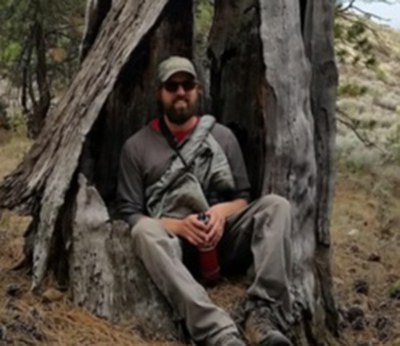Thanks to those of you who came out to our January 31st Nature Night, Wildlife and Recreation. It was an educational presentation full of fascinating information from wildlife biologist Brock McCormick.
Interesting facts from Brock's Presentation:
- Give wildlife space! One study found that recreationists felt that 59 meters was an acceptable distance from wildlife. However, 150 meters is the average flight distance of bison, mule deer and pronghorn.
- We have lots of trail options in Central Oregon and we love them!
- We have enough trails in the Deschutes National Forest that you could recreate every weekend from May-September and cover 38 miles per weekend and not see the same trail.
- A minimum of 15 people/hour or 240 people/day use the Deschutes River trail during the summer.
- In 2015, 704 pounds of garbage was packed out of the Three Sisters Wilderness and around 500 piles of human waste were buried by wilderness rangers.
- Over the past 5 years, there has been 15-20% annual growth in recreational use in the Deschutes National Forest.
Tips to help protect wildlife while you recreate:
- Stay on designated trails.
- Give wildlife space.
- Clean your gear (boots, waders, boats, caving gear) to prevent the spread of disease and invasive plants.
- Pack out all trash and waste.
- Respect and protect riparian areas.
- Keep dogs on leash.
- Obey seasonal restrictions.
- Volunteer to pick up trash or get involved in restoration efforts.
Additional resources:
 About Brock McCormick:
About Brock McCormick:
Brock McCormick has worked for the US Forest Service for over 15 years in the fields of ecology and wildlife biology; covering three regions across the west including locations in Arizona, Colorado, and Oregon. He currently supervises the wildlife program for the Bend Fort Rock Ranger District of the Deschutes National Forest. He has worked with lynx, boreal toads, bighorn sheep, songbirds, bats, bumble bees, owls and other raptors. Off work he enjoys live music, playing mandolin and spending time outdoors with his wife, dogs, and two young boys.
